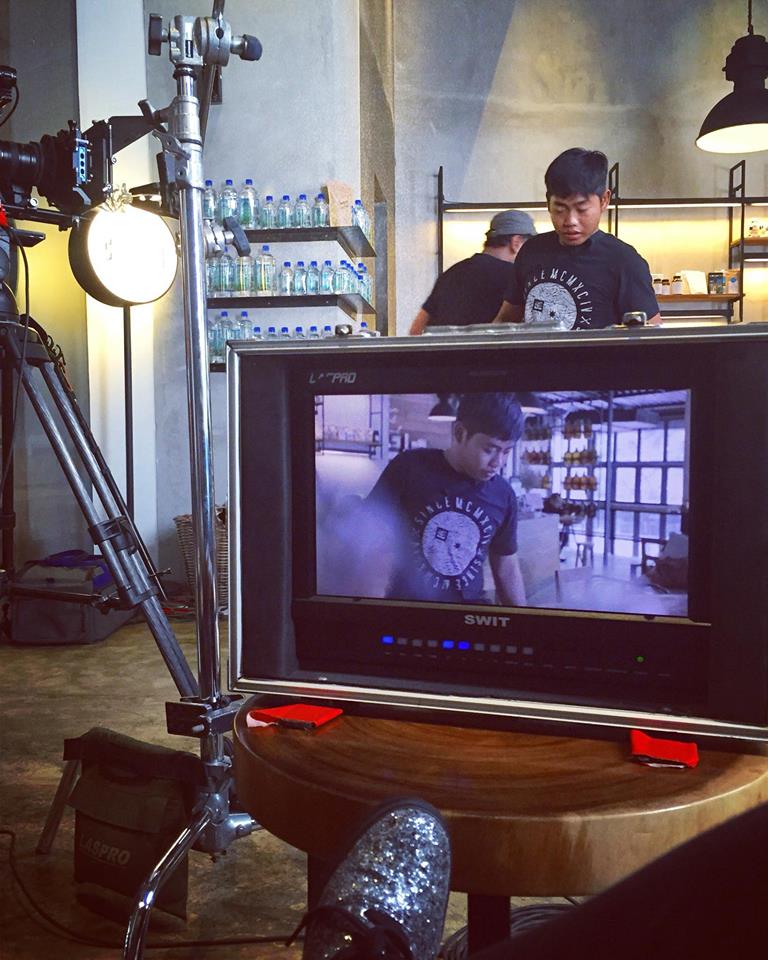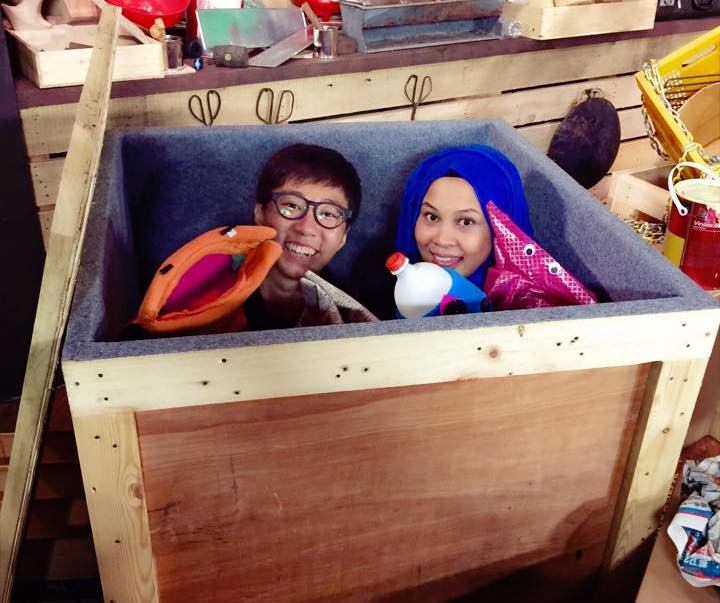Marianah Arshad was employed by her former boss at age 26 and stayed with her till age 38, choosing to work under her through three rounds of organisational changes—when she could have easily switched bosses like many of her colleagues did—and even when her boss left to start her own company. Since this is so rare these days, we decided to find out what it was about her boss that made her stay, and, more intriguingly, why Marianah too eventually moved on.
“Working for a boss who maintains a moral compass was very important to me.”Q: Hi Marianah! First off, can you tell us a little about the boss you spent 12 whole years working with? How did you end up working under him/her?
A: I had been freelancing for about 7 years or so in production then. I was in my mid-20s and was honestly getting exhausted from the long production hours and unreliable paymasters. My boss was a Senior VP then who had been newly appointed as head of a new department in the company so she was recruiting a team.
During my interview, I remember telling her very little of my production experiences. Instead, she gave me scenarios of potential work problems and asked how I would resolve them. I got the job a week later and I ended up working with her for 12 years.
How did your jobscope and position change throughout the years under her management? And did her jobscope and position change as well? If so, how?
There were no major changes in my jobscope or position honestly. Fundamentally, I was doing the same job—which was to manage productions. But each project came with its own set of challenges. For example, prior to working with her, I had no clue how to execute or manage productions overseas but that was what I had to learn to do for the first 3 years on the job.
For my boss, her jobscope and positions changed over the years as the department went through several restructuring changes. With each change, new challenges followed. In the 12 years there, we produced award-winning documentaries, dramas, info-eds, talkshows, corporate videos, content for ministries, ‘live’ programs, and 5 seasons of a children’s show which was my last project working with her.

Why did you stick with the same boss throughout all the above changes? Was there something working under her provided that you could not find elsewhere?
She emphasised the importance of having strong moral principles constantly, i.e. you must always do the right thing, even if it means you may not be totally happy with the outcome. So if you can excel in a task by cheating your way through instead of honestly working on it, you’ll be out of her books if she finds out hahah. But working for a boss who maintains a moral compass was very important to me. She was a boss who gave credit where credit was due, so if you work honest and hard, you will get rewarded. Over the years, I had seen her fight for rewards and promotions for deserving staff. She was also genuinely concerned about your professional and personal development. So those were some of the reasons why I stayed as long as I did.
Why did you eventually leave though?
My passion for production work was dying. I had been in the line for almost 20 years and I had other interests that I had been unable to pursue earlier. As I was approaching my late-30s, I started thinking if I do not take the leap to pursue them soon, I never will. So I left.
What was your work routine like when you were working under the boss you spent 12 years working for?
My work was mostly regular hours, except when we had multiple productions and that was when things got really stressful and crazy. We’d have a few months of lull periods, and a few months of long hours.
What about your routine in the hours when you were not supposed to be at work? What was that like with the boss you worked 12 years for?
Of course there were times when I had to answer work messages or emails after work hours or even on holidays, but that’s the nature of the production work I was doing—it was something that’s expected of the job I signed up for. But they were hardly disruptive to my personal space and time, and even when/if they were at any time, I would just honestly say that I could not attend to it immediately.

How were weekends like?
Weekends were mostly my personal time, except, again, if we were on production.
What advice do you have for someone thinking of staying with the same boss for more than ten years and what advice do you have for bosses wanting to keep their staff for more than ten years?
I don’t think anyone will set themselves up to work for the same boss for a long time, in fact I didn’t think anyone would. For me, it just so happened I found a boss who could see the value I could bring to the table, and she appreciated that value by treating and compensating me fairly.
What are the key things/people/situations that made you stick with the same boss for more than ten years, in your opinion?
To be honest, there were many. I was always given opportunities to explore new things so I never felt that I was stuck in a rut. For example, my main job was managing budgets and resources—it was a very logistical role—but I like dipping my hands in creative work and have a knack for it. She saw this and opened up new things for me to try. She was also an ‘accessible’ boss. I could just walk into her room when I needed to clarify or suggest anything and she would always hear me out.
How did staying with the same boss for so long impact your life, in your opinion?
My boss was an intense, creative person. She had a ‘nothing is impossible’ attitude so our team would be finding all sorts of ways to make her ideas and concepts work. This had somehow forced and trained us to come up with innovative ways of doing things and solving problems, and this mentality has rubbed off on me personally. As I face new challenges now, I always find myself thinking, “I’ll find a way to do this. There has to be a way.”

If you could go back and replay your entire career all over again, what would you do differently?
I would have saved more money! Haha! But career wise, I wouldn’t change a thing. I had worked with many different bosses previously but the 12 years working with her was the highlight of my career. I got to travel extensively in the first few years on the job, met so many amazing people, and I had so many amazing experiences that I would cherish for a long, long time.
Which 3 objects/people in your life can you presently not live without and why?
My husband, my mother, and an internet connection. The first two are my pillars of strength. The third one is a luxury I cannot live without.
Of all the objects you bought in the past year, which has been most useful? Why?
My laptop. It has helped me start my own business and has been the source of all the information I need to run it.
What is the worst advice you’ve been given, or have heard people giving, with regards to people management? And what’s the best?
Worst advice—“Don’t play nice, they’ll walk all over you.” Personally, I find that it’s important to try and be nice, but firm, when you manage people. I find that most people tend to cooperate at work and go the extra mile this way. Plus, it just creates a pleasant environment. I don’t know if I just happen to be a lucky one.
Best advice—“Always do the right thing, because it’s you who will have to live with your conscience.” I’d like to keep mine as clear as possible.

Marianah is presently running a small natural skincare online business while simultaneously working towards a diploma in Natural Skincare Formulations. Her goal is to someday run workshops for folks who would like to make natural skincare products at home with better ingredients than store-bought ones. You can see her progress on her website, www.aidilic.com, or chat with her about good bosses and bad bosses using the comment box below.
Interviewer Note:
Full disclosure—I once worked under Marianah’s boss too, though not for a heroic 12 years like her, only for 3. Now that Marianah has mentioned it though, I’m noticing (for the first time) that that boss’s ‘nothing is impossible’ attitude must have rubbed off on me too, which is probably how I ended up creating and running LUCK-IT today. I now think bosses impact the world and human lives way more than they notice. That, I think, is what a boss should really be aware of when deciding how they want to rule. 😉
Photographs courtesy and copyright of Marianah Arshad. Interviewer: Sy
If you found this article useful:

Say something: